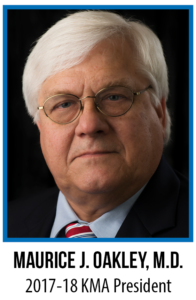Published April 11, 2018
 Last week I had to get some work done on my car.
Last week I had to get some work done on my car.
One may liken it to getting your yearly physical. Just a tune up, to make sure everything was running smoothly.
When it came time to pay the bill, I took out my credit card and happily paid. As do most other drivers. It is understood that routine maintenance is part of owning a car.
But here is where the similarities between car maintenance and human maintenance end.
At this point in the story, if the car was a person, the insurance company would likely come back and deny at least some part of the encounter, claiming that a procedure may not have been ‘medically necessary.’
Can you imagine telling your auto mechanic that you don’t feel the work he performed on your car was necessary, and refusing to pay…after the service was already completed?!
Somehow though, it’s acceptable for insurance companies to tell physicians that their years of education and training in the field of medicine don’t actually qualify them to determine what tests or procedures need to be administered.
A few days ago I had a stroke patient in my office whose neurologist was concerned about eye damage. I ordered a visual field to gauge the severity. The insurance company somehow thought that test wasn’t medically necessary…and denied the claim. I guess they thought I would use my crystal ball to discover whether this person would ever see clearly again!
It isn’t just denials of coverage that are frustrating though. It’s the red tape of prior authorizations, the varying reimbursement rates and the hours spent on EHRs. Not to mention, the looming threat of insurance companies abruptly changing a policy, with little notice, and of course, zero outside physician input.
That’s why I’m so passionate about KMA’s AIM for Better Care: Administrative Improvements in Medicine initiative. By focusing on the detrimental effects to the health of Kentuckians, we want to improve upon or eliminate some of these issues and deliver better care to our patients. From legislation and policy, to public awareness and education, there is so much we can do as an organization that can truly make a difference.
KMA is still seeking physician input on these issues. You can send an email at any time to administrativeburden@kyma.org to share your experiences or vent your frustrations.
There is already proof that our members can influence positive change. Just take a look at Anthem’s recent decision to rescind its Modifier 25 policy. Or the passage of Senate Bill 89 in 2017, which mandated coverage of smoking cessation services.
Physicians don’t need a crystal ball or a magic wand to make progress in the field of medicine. By exercising our skills and continuously seeking to better the lives of our patients, we will succeed.

